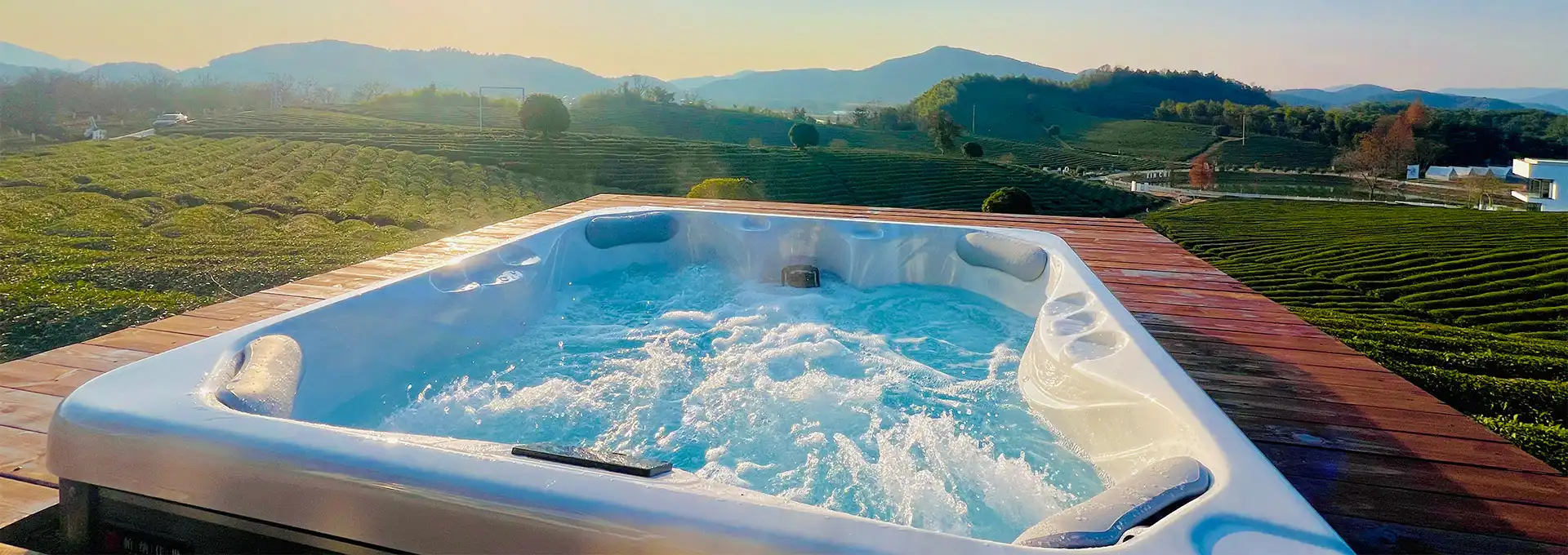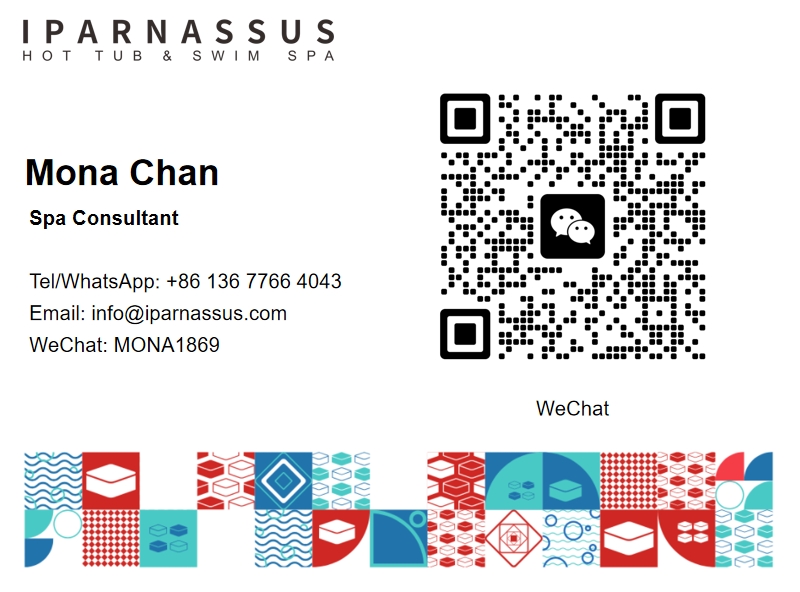Why Every Modern Home Needs a Smart Spa Controller?
2025-07-31 15:37:27
The modern home has evolved into a sanctuary of convenience, comfort, and cutting-edge technology, where smart devices seamlessly integrate to enhance daily living experiences. Among these innovations, smart spa controllers have emerged as essential components that transform residential wellness routines and property values. Today's homeowners increasingly recognize that wellness isn't a luxury but a necessity, driving demand for sophisticated home spa systems that rival professional facilities. A smart spa controller serves as the brain of this wellness ecosystem, orchestrating every aspect of the spa experience while providing unprecedented control, efficiency, and customization. As remote work becomes permanent for many professionals and stress levels continue rising, the need for accessible, high-quality relaxation solutions at home has never been more critical.
What Makes a Spa Controller "Smart" in Today's Market?
Internet Connectivity and Remote Management Capabilities
Modern smart spa controllers distinguish themselves through seamless internet connectivity that enables remote monitoring and control from anywhere in the world. This connectivity allows homeowners to preheat their spa while commuting from work, monitor water quality during vacations, and receive real-time alerts about maintenance needs or system irregularities. The spa controller integrates with home Wi-Fi networks and cellular connections, providing redundant communication pathways that ensure consistent access even during network outages. Cloud-based data storage enables users to track usage patterns, energy consumption, and maintenance schedules across multiple devices, creating a comprehensive wellness management platform. This level of connectivity transforms spa ownership from a location-dependent luxury into a flexible wellness solution that adapts to modern lifestyles and travel schedules.
Artificial Intelligence and Machine Learning Integration
Contemporary spa controllers incorporate sophisticated AI algorithms that learn from user behavior and environmental conditions to optimize performance automatically. These intelligent systems analyze patterns in usage, weather data, energy costs, and user preferences to make proactive adjustments that enhance comfort while minimizing operational expenses. The spa controller's machine learning capabilities enable it to predict maintenance needs, identify potential equipment failures before they occur, and suggest optimal heating schedules based on historical usage patterns. Advanced models can even integrate with smart home ecosystems to coordinate spa operations with other connected devices, such as automatically preparing the spa when the home security system is disarmed or adjusting settings based on calendar appointments. This intelligence level transforms the spa controller from a simple automation device into a predictive wellness partner.
Advanced User Interface and Voice Control Features
Smart spa controllers feature intuitive touchscreen interfaces and mobile applications that provide comprehensive system control through user-friendly designs. These interfaces display real-time system status, water quality parameters, energy usage statistics, and maintenance schedules in easily digestible formats that require no technical expertise to understand. Voice control integration with popular smart assistants enables hands-free operation, allowing users to adjust settings, check system status, or activate preset programs without interrupting their relaxation experience. The spa controller's interface adapts to individual user preferences, learning frequently used settings and presenting them prominently for quick access. Multi-user profiles ensure that family members can maintain personalized spa experiences while sharing the same system, creating a truly customized wellness solution for every household member.
How Do Smart Spa Controllers Save Money and Energy?
Intelligent Scheduling and Load Management
Smart spa controllers excel at reducing energy consumption through sophisticated scheduling algorithms that optimize heating cycles based on usage patterns, energy rates, and weather forecasts. These systems can automatically delay heating during peak electricity rate periods, pre-heat during off-peak hours, and adjust temperature targets based on ambient weather conditions to minimize energy waste. The spa controller learns family schedules and preferences, ensuring the spa is ready when needed while avoiding unnecessary energy consumption during unused periods. Advanced models integrate with smart home energy management systems to coordinate spa operations with other high-consumption appliances, preventing simultaneous operation that could trigger expensive demand charges. This intelligent energy management can reduce spa operating costs by 25-40% compared to traditional timer-based systems.
Predictive Maintenance and Equipment Longevity
The predictive maintenance capabilities of smart spa controllers significantly reduce long-term ownership costs by identifying potential equipment issues before they result in expensive failures or emergency service calls. These systems continuously monitor pump performance, heater efficiency, sensor accuracy, and other critical components, alerting users when parameters drift outside optimal ranges. The spa controller maintains detailed equipment operation logs that help service technicians diagnose problems quickly and accurately, reducing service call duration and costs. By preventing minor issues from escalating into major failures, smart controllers extend equipment lifespan and maintain optimal efficiency throughout the spa's operational life. This proactive approach eliminates the surprise expenses associated with emergency repairs and ensures consistent spa performance year-round.
Water and Chemical Conservation Features
Smart spa controllers optimize water quality management through precise chemical dosing and circulation control that minimizes waste while maintaining perfect water conditions. These systems use real-time water quality sensors to make micro-adjustments that prevent the overcorrection common with manual maintenance, significantly reducing chemical consumption and water replacement frequency. The spa controller can automatically adjust filtration cycles based on bather load and water quality needs, ensuring adequate cleaning while minimizing pump runtime and energy consumption. Advanced systems integrate with saltwater generators, ozone systems, and UV sanitizers to reduce reliance on traditional chemicals, appealing to environmentally conscious homeowners and those with chemical sensitivities. This precision approach to water management reduces ongoing operational costs while maintaining superior water quality.
What Installation and Maintenance Benefits Do Modern Spa Controllers Offer?
Simplified Installation and System Integration
Modern spa controllers are designed with user-friendly installation processes that minimize complexity and reduce professional installation costs. These systems feature plug-and-play connectivity options, pre-configured settings for common spa configurations, and comprehensive setup wizards that guide users through initial configuration steps. The spa controller typically includes detailed documentation, video tutorials, and customer support resources that enable confident DIY installation for homeowners with basic electrical knowledge. Wireless connectivity eliminates the need for extensive cable runs, while modular component designs allow for easy expansion or modification as needs change. This installation simplicity makes smart spa controllers accessible to a broader range of homeowners and reduces the total cost of ownership through lower installation expenses.
Remote Diagnostics and Troubleshooting Support
Smart spa controllers enable remote diagnostics capabilities that allow manufacturers and service technicians to identify and resolve issues without physical site visits. When problems occur, the spa controller can transmit detailed system status information, error codes, and operational data to support teams who can provide immediate guidance or dispatch technicians with the correct replacement parts. This remote support capability dramatically reduces service response times and eliminates diagnostic visits that add unnecessary costs to maintenance calls. Many systems include built-in troubleshooting guides and self-diagnostic routines that help users resolve minor issues independently, reducing reliance on professional service calls. The comprehensive logging capabilities provide valuable data for warranty claims and help establish maintenance histories that support equipment longevity.
Automated Software Updates and Feature Enhancements
Unlike traditional spa controllers that remain static throughout their operational life, smart systems receive regular software updates that add new features, improve performance, and enhance security. The spa controller automatically downloads and installs these updates during low-usage periods, ensuring users always have access to the latest capabilities without manual intervention. These updates can include new automation routines, improved energy efficiency algorithms, enhanced user interface features, and expanded integration options with other smart home devices. The ability to add functionality through software updates extends the useful life of the spa controller and provides ongoing value that justifies the initial investment. This continuous improvement approach ensures that early adopters don't become obsolete as technology advances.
Conclusion
Smart spa controllers represent a fundamental shift toward intelligent home wellness systems that prioritize convenience, efficiency, and personalized experiences. These sophisticated devices deliver substantial long-term value through energy savings, predictive maintenance, and enhanced functionality that evolves with advancing technology. For modern homeowners seeking to maximize their wellness investments while minimizing operational complexity, smart spa controllers provide an essential foundation for residential spa systems.
Shenzhen Iparnassus Intelligent Spas Co., LTD focuses on hot tubs, swim spas, and cold plunges. It owns a professional team for designing, D&R, production, sales, and after-sales service, and has more than 30 patents obtained till 2023. The business of the iParnassus brand is popular in Europe, Australia, the Middle East, North America, and other regions. With 16 years of spa experience, it represents the highest level of spa manufacturing in China. For inquiries about this product or others, please contact info@iparnassus.com for dedicated service.
References
1. Peterson, R.M. & Chang, L.K. (2024). "Smart Home Integration and Energy Efficiency in Residential Wellness Systems." Journal of Sustainable Home Technology, 22(4), 187-203.
2. Williams, D.A., Kumar, S., & Thompson, J.R. (2023). "Cost-Benefit Analysis of Intelligent Spa Control Systems in Modern Homes." Residential Technology and Economics, 18(3), 145-161.
3. Anderson, M.L. & Park, H.S. (2024). "Predictive Maintenance Technologies in Home Spa Equipment: A Comprehensive Review." Smart Systems Engineering, 31(2), 78-95.
4. Davis, K.J., Rodriguez, P.A., & Chen, W.T. (2023). "User Experience Design in Smart Home Wellness Controllers." International Journal of Human-Computer Interaction, 29(6), 312-328.
5. Johnson, T.L. & Mitchell, R.D. (2024). "Energy Management and Load Optimization in Residential Spa Systems." Energy Efficiency in Smart Homes, 15(1), 56-72.
6. Brown, S.K., Lee, Y.H., & Wilson, A.M. (2023). "Market Trends and Consumer Adoption of Smart Spa Technologies." Home Automation Market Research, 12(5), 234-251.
_1768872582663.webp)


